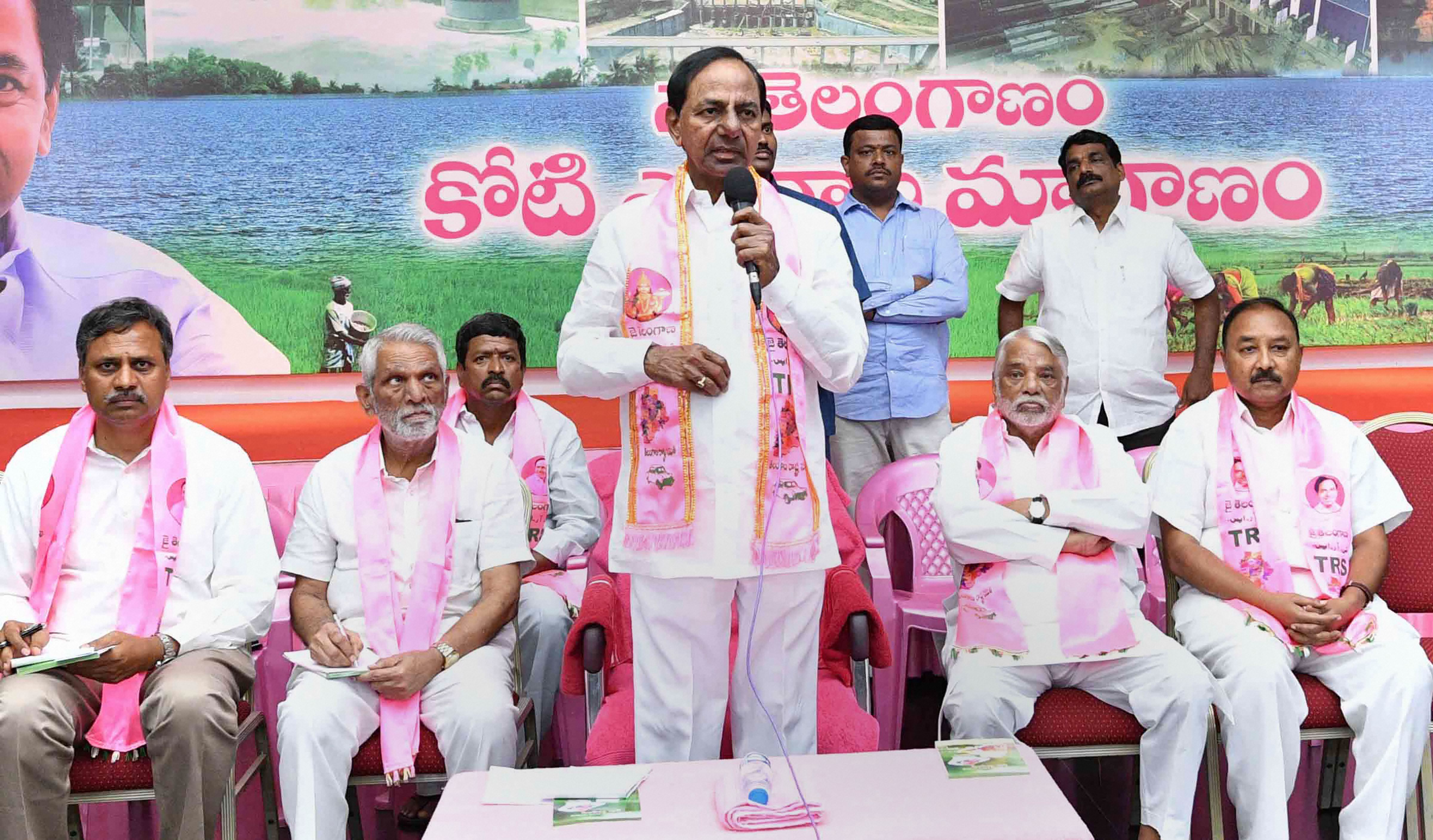
Why KCR helped Modi govt pass contentious bills in Parliament

Going by the BJP’s plans to emerge as the main challenger to the Telangana Chief Minister K Chandrasekhar Rao, one would have expected his Telangana Rashtra Samithi (TRS) to strongly oppose some of the contentious bills passed by Parliament recently.
However, KCR, as the Chief Minister is popularly known, sprang a surprise by supporting the RTI amendment bill and the Inter-State River Water Disputes (Amendment) Bill, although both the legislations involved federal issues and were widely seen as undermining the rights of the states.
More importantly, TRS members abstained from the Rajya Sabha during the debate and voting on the controversial Triple Talaq bill, indirectly helping the NDA government to have a smooth sailing. This is despite the fact that the All India Majlis Ittehadul Muslimeen (AIMIM), which has steadfastly opposed the legislation, is an ally of the TRS.
Erosion of Hindu votes
The fear of further erosion of Hindu votes could be one of the reasons for the TRS to refrain from opposing the Triple Talaq bill. The regional party suffered a major setback in the April 11 Lok Sabha elections when the BJP wrested three seats — Adilabad, Karimnagar and Nizamabad — from it, besides retaining Secunderabad.
The defeat of KCR’s daughter K Kavitha in Nizamabad and a close relative B Vinod Kumar in Karimnagar was particularly embarrassing for the Chief Minister. The BJP has made it clear that Telangana would be its next target among southern states and vowed to capture power in the state in the 2023 elections.
The calculation in the TRS camp is that if it had gone with the other opposition parties and voted against the Triple Talaq Bill, it would have only helped BJP make inroads into the Muslim women electorate and the TRS would have been accused of minority appeasement. In terms of votes, it would have meant lose-lose situation.
U-turn on RTI
The TRS, which has nine members in the Lok Sabha and six in Rajya Sabha, had earlier took the position that the RTI amendment bill must be sent to the select committee for a thorough examination of its provisions. However, it did a U-turn subsequently and supported the government on the legislation, drawing flak from several quarters.
Former Information Commissioner Sridhar Acharyulu shot off an open letter to KCR and Chief Ministers of Andhra Pradesh and Odisha, seeking an explanation behind their support to the bill which “destroys the independence of information commissioners” and “encroaches upon the sovereign rights of states”.
Neither KCR nor any of his party colleagues have responded to the criticism.
A common thread running through several legislations introduced by the NDA in the recent times has been an open attempt to centralise powers and dilute the federal spirit.
Despite being a formidable regional party, the TRS has been unwilling to articulate the rights of the states. Instead, it has been meekly accepting the Centre’s policy moves.
The TRS came out in support of the Inter-State River Water Disputes (Amendment) Bill, although other regional parties like Tamil Nadu’s DMK and Odisha’s BJD have opposed it, saying it infringes on the rights of the states.
KCR also threw his weight behind the Dam Safety Bill, 2019, although several states have voiced their concern, saying it would undermine the powers of the state governments since water is a state subject. The legislation virtually allows the Centre to take over the maintenance of the dams in the name of providing uniform safety measures across the country.
KCR’s brand of Hinduism
As the BJP is keen on making inroads into Telangana, harping on the Hinduism plank, KCR wants to showcase his own brand of Hinduism and prove that he is more Hindu than any of the BJP leaders.
Organising ‘Maha Sudharshana Yagam’ has a clear political messaging. KCR is deeply religious and a stickler to astrology and rituals. The optics surrounding his religious practices, frequent visits to ashrams to seek blessing of Hindu seers and his donation to the temples are expected to negate the BJP’s attempts to play the Hindutva card in Telangana.
While the Congress’s strategy of ‘soft Hindutva’ to counter the BJP in the northern states has failed to yield electoral dividends, KCR wants to take on the saffron party with his own unique brand of Hinduism.
At the same time, the TRS cannot afford to antagonise its long-time friend AIMIM supremo Asaduddin Owaisi who had campaigned for the regional party in the April 11 elections.
Pragmatic politics
Pragmatism and conciliation define KCR’s brand of politics. He comes across as an ideologically-neutral and practical politician amenable for deals.
In fact, when he first mooted the Federal Front, a conglomeration of regional parties as an alternative to BJP and Congress, in March last year, it was widely seen as a “B-Team” of BJP. The expectation in political circles was that KCR would be willing to do business with any formation at the Centre in the event of a fractured mandate.
He was part of the UPA-I and had served as the Labour Minister in the Manmohan Singh cabinet before walking out of the Congress-led coalition over Telangana issue.
Faced with the possible erosion on his home turf, given the BJP’s assertion that southern states would be its next target of expansion, he is expected to focus on containing the damage, rather on attempting to take on a formidable and stronger NDA at the Centre.
Moreover, the country’s youngest state needs liberal funds and new projects from the Centre.

